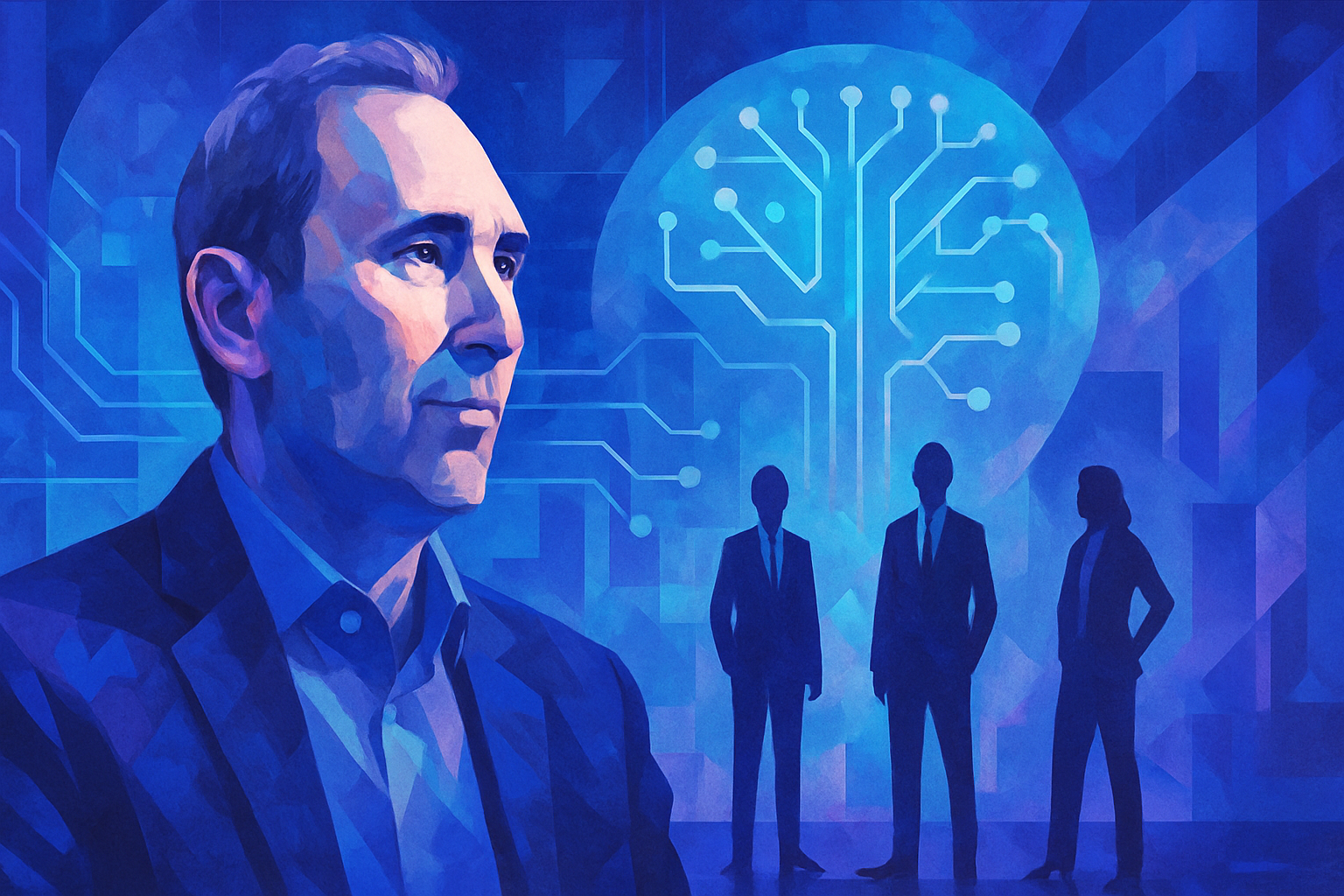Andy Jassy, CEO of Amazon, unveils a bold and decisive vision regarding the impact of AI on work. *A shift in the professional landscape* is emerging, where technology-shaped efficiency requires renewed leadership. The message, both *provocative and revealing*, calls on leaders to adapt in the face of inevitable technological evolution. Balancing the challenges associated with AI with *growth opportunities* becomes essential for survival and prosperity in a rapidly changing business environment. A cultural transformation is imperative, where each leader must take responsibility for navigating this new era.
Impact of Artificial Intelligence on Jobs
Andy Jassy, the CEO of Amazon, recently delivered a revealing message to his employees, highlighting the consequences of *generative artificial intelligence*. In his remarks, Jassy stated that certain current roles would become obsolete, while others would emerge. This change is part of a search for increased efficiency. Ultimately, this could lead to a significant reduction in the workforce within the company.
This observation is not trivial. A company the size of Amazon embodies a broader trend observed in many organizations where *automation* is rapidly advancing. Industry leaders, such as Jensen Huang of Nvidia, are also cautioning about these rapid evolutions and their impacts on the job market.
An Adaptable Mindset is Essential
Leaders must cultivate a *growth mindset* to navigate this era of transformation. The renowned psychologist Carol Dweck reminds us that “becoming is better than being,” which highlights the importance of openness to change. Business leaders who cling to an image of expertise risk being surpassed by the rapid evolution of technologies.
It is vital to let go of the professional identity acquired to fully engage in what one must become. This involves less ego, more experimentation, and an increased curiosity. By modeling this mindset for their teams, leaders positively influence their organizations’ responses to this *transformation*.
Fluency in Artificial Intelligence
Acquiring a mastery of *artificial intelligence* does not require becoming an expert in machine learning. However, it is crucial to establish a solid foundation in understanding what AI can offer and the limits it imposes. This includes introspection on how AI can optimize leadership, improve decision-making, and enrich communication.
Curiosity itself opens doors to better adaptation. Asking questions about the use of AI tools is just the beginning. Understanding how these features can transform leadership work, for example, is an essential step. Leaders who succeed in navigating this complexity, even at a basic level, will quickly become assets to their organizations.
Anticipation and Organizational Preparation
Top athletes anticipate just as leaders must also foresee their future needs within the company. Jassy mentioned that Amazon operates as “the biggest startup in the world,” which implies a mode of functioning oriented toward early experimentation and the ability to iterate quickly. Embracing this philosophy is imperative, regardless of the size of the organization.
Building a culture of adaptability, innovation, and cooperation before urgency sets in is fundamental. Leaders who wait to encounter a challenge before acting place themselves in a vulnerable position. At a time when the need for a new skill becomes pressing, it is often already too late to develop it effectively.
The Opportunities Linked to AI Challenges
Andy Jassy’s message, like those from other leaders on the subject of *AI*, may seem unsettling, especially in the context of current uncertainties. Nevertheless, an optimistic perspective reveals opportunities for progress for leaders who choose to engage. It all begins with the perception that each person has of themselves in the face of challenges.
A necessary change in the way we speak to ourselves profoundly affects leadership methods. Leaders must consider both the threat and promise that AI represents. It is not only a danger, it is also an opportunity to reinvent the landscape of leadership. The opportunity through the lens of artificial intelligence awaits those who are ready to seize it.
Common Frequently Asked Questions
What impact will AI have on jobs at Amazon according to Andy Jassy?
Andy Jassy emphasizes that the increasing use of AI could lead to job reductions in certain areas, while there may be an increase in jobs in other sectors, requiring workforce adjustments.
How can leaders adapt to the changes brought by AI?
Leaders are encouraged to adopt a growth mindset, freeing themselves from their expert identity to become more curious and open to experimentation in order to adapt to changes due to AI.
Why does AI require a basic understanding, even for those who are not technical?
A fundamental knowledge of AI is essential for effectively integrating it into decision-making, communication, and strategy development, even if one is not an expert in machine learning.
What is the importance of curiosity in the face of technological advances like AI?
Curiosity is crucial as it allows for relevant questions to be asked about the use of AI and explores its real applications, thereby facilitating adaptability and innovation.
How can companies anticipate AI-related changes before they become critical?
Companies need to proactively develop their culture, skills, and processes by adopting an approach of experimentation and iteration to remain competitive in a rapidly changing environment.
What is the role of mindset in managing AI-related challenges?
The way leaders perceive AI-related challenges directly influences their ability to navigate these changes. A positive and adaptable perspective can open up opportunities rather than create obstacles.
Why is it an opportune moment for leaders to embrace AI?
Leaders who actively engage with AI tools are likely to gain a unique competitive advantage by using resources innovatively to enhance their business.






